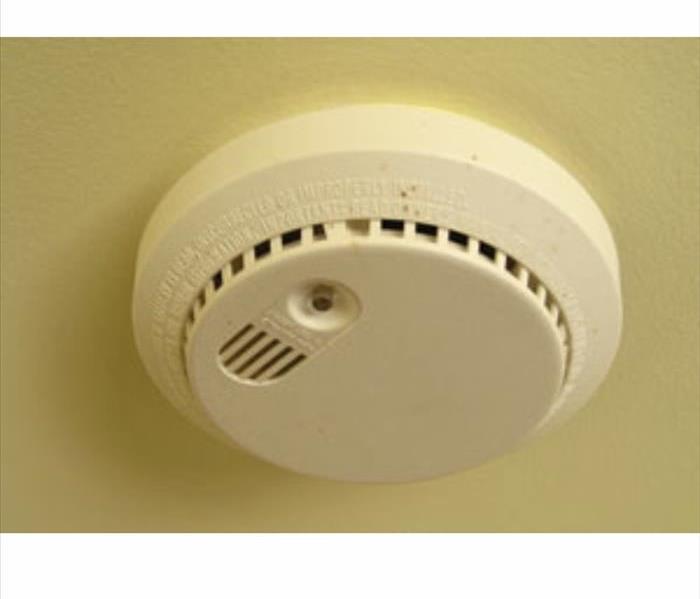Types of Fire Alarms For In Your Home
7/26/2019 (Permalink)
When looking to purchase and instal fire alarms, you’ll notice there are many different brands of smoke alarms to choose from. Mainly they fall under just two categories: ionization and photoelectric. Ionization alarms activate quickly in response to flaming, fast moving fires; while photoelectric alarms are quicker at detecting smoldering, smoky fires. Because fires are so unpredictable, manufacturers have also developed smoke alarms that combine both ionization and photoelectric technologies into one unit. These are called dual sensor alarms.
According to the U.S Fire Administration, you should install smoke alarms on every single floor of your home, as well as in every bedroom, and in the hallway outside of each sleeping area. You should also consider installing smoke alarms in often-forgotten places like basements, attics, utility rooms, and/or garages.
Smoke alarms should be placed on the ceiling or high on a wall. It’s important to check the manufacturer’s instructions for further information regarding the best place to install your smoke alarm. If you choose hardwired smoke alarms, be sure to have them installed by a qualified electrician so that you’re ensured they’re installed properly. If not installed properly, you run the risk of them not working when you need them to.
Smoke alarms are either battery operated or hard-wired to your home’s electrical system. Regardless if whether your smoke alarm is battery operated or hard-wired, NFPA recommends that you test your smoke alarm regularly, on a monthly basis. It’s also important to know that battery operated alarms can either utilize 9-volt batteries or long-life lithium batteries. The batteries in 9-volt alarms should be replaced at least once a year, but you should consider changing them every six months instead. A good rule of thumb is to replace your 9-volt batteries when you set your clocks for the start of Daylight Savings Time and then again when Daylight Savings Time ends. Batteries in hard-wired smoke alarms should be replaced once a year, while long-life lithium batteries (as the name implies) can last up to 10-years. Note – you cannot and should not replace lithium batteries. Instead, replace the entire smoke alarm (according to the manufacturer’s requirements).
Should you experience a fire resulting in fire damage then give us at SERVPRO of Burlington a call at 336-379-1772. We are available 24/7 and 365 in order to assist you in restoring your home after a fire.






 24/7 Emergency Service
24/7 Emergency Service
